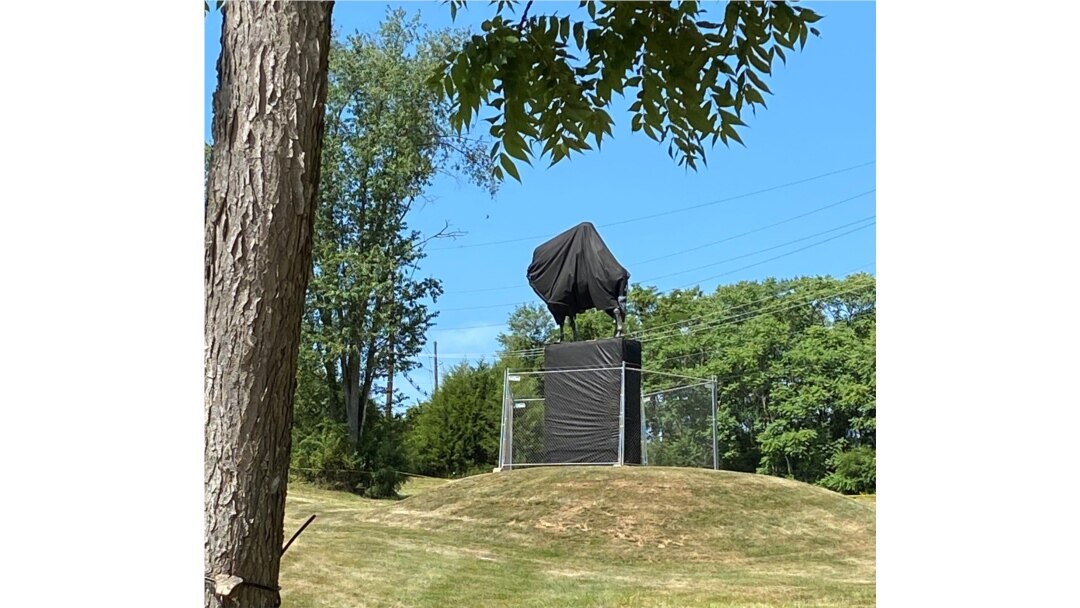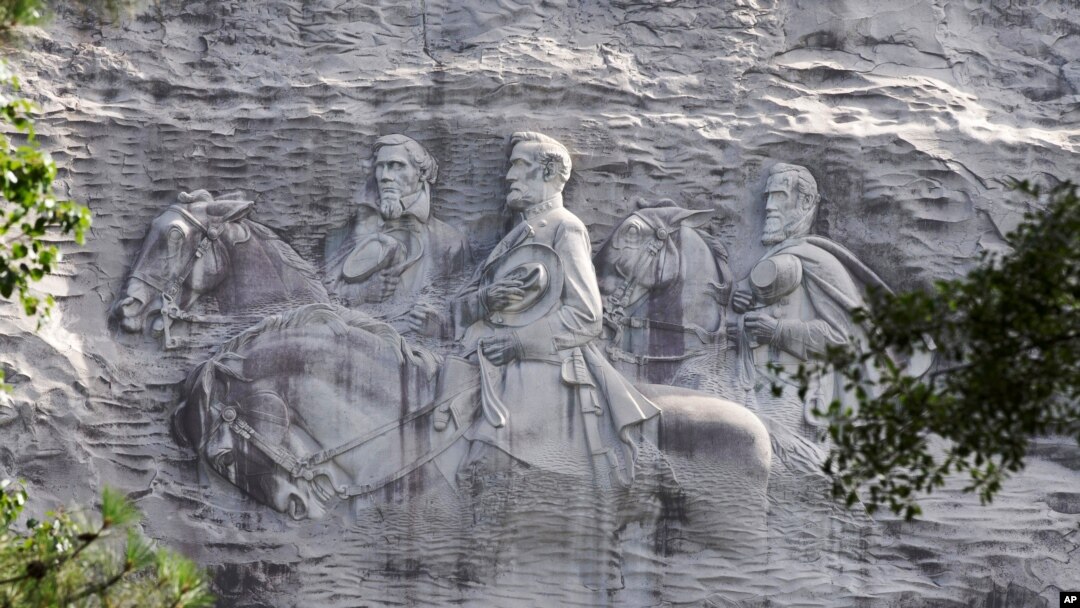For Shelly Hutchinson, a Georgia state representative, the message of Stone Mountain, the nation’s largest Confederate monument, is personal.
The 250-meter-high mountain of quartz monzonite bears the largest bas-relief carving in the world, featuring the likenesses of Confederacy President Jefferson Davis and Confederate Generals Robert E. Lee and Thomas “Stonewall” Jackson, in a grandiose piece of art plainly visible from a nearby highway.
This homage to the Civil War — the war Americans fought at least in part over the right to own slaves — is located in the suburbs of Atlanta, Georgia, where more than one-third of the population is black. And U.S. census numbers show that the village of Stone Mountain, within sight of the huge carving, has a population that is nearly three-quarters black.
“Kids are molded by their environment,” Hutchinson said in a recent phone interview. “If you have schoolchildren who drive past that memorial or any other Confederate memorial, the message is that the Confederacy means more than you do.”
Yet, there are others, like Martin O’Toole of Atlanta’s Sons of Confederate Veterans, who say getting rid of Confederate monuments would be akin to trying to erase history, and discussion of their significance is normal.
“Diversity of opinion on these matters is essential,” he said in an email to VOA.
Since 1915, the mountain has been a gathering place for the white supremacist group, the Ku Klux Klan, and other groups like it. For decades, the Klan met annually at the site, with the blessing of the family who owned it. Even now that the mountain is state property, historic Confederate flags fly at the site, and some visitors bring their own.

This July 20, 2020, photo shows the statue of General Robert E. Lee at Antietam battlefield in Maryland. The National Park Service covered it after it was vandalized July 16, 2020. (M. Melton/VOA)
Not only would it be difficult to destroy or alter a gigantic memorial literally carved in stone, but it is also protected by Georgia state law. When lawmakers removed Confederate imagery from the Georgia state flag in 2003, they added a compromise: a provision that Stone Mountain’s tribute to the Confederacy remain, as is, in perpetuity. Hutchinson has introduced legislation to get that changed – in fact, to outlaw Confederate memorials outright on Georgia public land, all of which are now protected by a law passed last year in Georgia’s Legislature.
Georgia is not alone in passing laws to protect its monuments. A number of other Southern states — North Carolina, South Carolina, Tennessee, and until recently Virginia — had similar laws. They apply to all historical monuments, not just those related to the Civil War. They protect the even the most controversial of monuments from being hastily taken down.
Hutchinson said the effort to hang on to Confederate symbols indicates, to her, that it is motivated by more than reverence for history. “This is a passive-aggressive way of saying, ‘We still have the upper hand,’” she said.
O’Toole questions the motivation of those who say the monuments are upsetting and should be taken down.
“What monuments are agreed upon by all Americans?” he said. “What the censors are demanding is either destruction of the monuments they disagree with or ‘contextualization’ markers to promote their own viewpoints.”
He suggested providing contextualization markers for all monuments, “not just Confederate or traditional American memorials.”
Meanwhile, on Tuesday, a House subcommittee held a hearing on what to do about Confederate memorials on public lands — specifically, several in Washington, D.C., and a statue of General Lee at a Civil War battlefield in Maryland, all of which have been vandalized recently by supporters of Black Lives Matter.
An image stating 'No America Without Black America' is projected on to the pedestal of the statue of confederate Gen. Robert E. Lee on Monument Avenue, July 22, 2020, in Richmond, Va.
Robert W. Lee, a North Carolina pastor and descendant of General Robert E. Lee, told lawmakers that he supports removal of the statue of his ancestor in Maryland and the many others like it across the South.
He read quotes from General Lee’s own congressional testimony, in which the Confederate general stated plainly that he did not believe Blacks were as capable of learning or of voting intelligently as whites.
Following those comments with his own, Robert W. Lee said, “For us to continue to celebrate a man who questioned the education, disparaged the right to vote … and had previously fought for the continued enslavement of Africans on the North American continent, is an affront to those now suffering under the continued weight of oppression.”
At that same hearing, Joseph Loconte of the Heritage Foundation criticized those who vandalized the monuments, saying, “This is not the way to bind up the nation’s wounds.”
Loconte also said historians like himself study the past “in order for … history to speak its truths and warnings and lessons into our present reality,” he said. “In the history of the world, that is quite a story — a story worth remembering and defending.”
Meanwhile, the times keep changing.
Late Thursday, the state of Virginia swiftly and quietly removed all Confederate memorials from its state Capitol building in the city of Richmond, once the capital of the Confederacy. And Fairfax County, Virginia, just announced it will change the name of its Robert E. Lee High School to that of John R. Lewis, a Black civil rights leader and longtime U.S. congressman who died last week.


